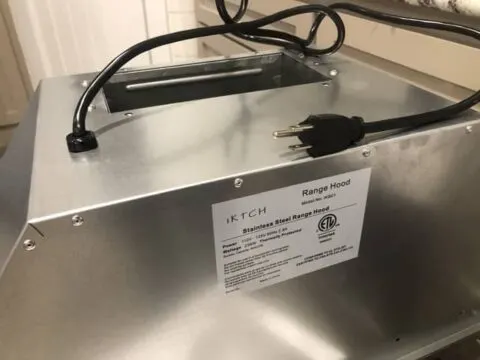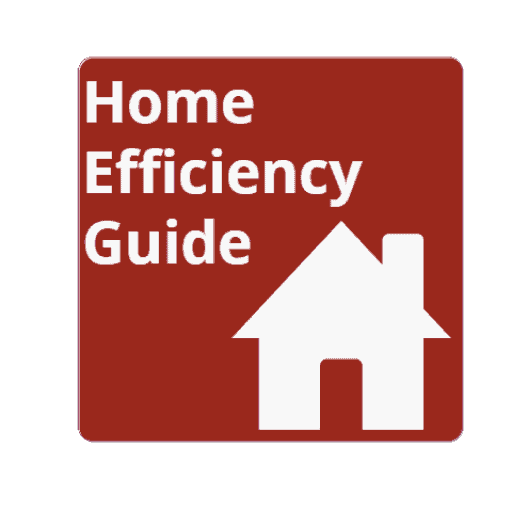A range hood is an essential part of any kitchen, and how they are powered matters, especially when installing. So, how exactly are they powered?
Range hoods can be both hardwired and plugin. If your hood came with a plug, it doesn’t require hardwiring. If there’s no plug, it is meant to be hardwired. Depending on the manufacturer’s specification, hoods that come with a plug can be hardwired, and hardwired hoods can be made to plug in.
I have installed range hoods using both methods. Each is appropriate given the circumstances. In fact, I just finished hardwiring a range hood that was originally designed to be plugged in. Let’s go into this topic in-depth, explaining if ductless range hoods are plugins and covering what you need to know about plugging in or hardwiring your range hood.
Do Ductless Range Hoods Plug In?
Ductless range hoods are the easiest type of range hoods to install, and most people can install one themselves without help from a professional.
Ductless range hoods can be both hardwired or plugin, the same as ducted hoods. The design of the range hood — whether it vents the air through ductwork to the outside of your home (ducted) or recirculates the kitchen area through a filter (ductless) — is separate from how it’s connected to power.
However, since many ducted range hoods will make the outlet inaccessible after installation, they’ll usually be hardwired. Since a ductless range hood can be mounted anywhere to keep the outlet accessible — plugging them in is easy and preferable.
I recently installed a range hood for my mother-in-law in her new home. It was designed to be used either with a duct or ductless. It came with a plugin for simple installation.

Most ductless range hoods come with a cord and plug.
It’s also possible to convert a ducted range hood into a ductless range hood with a recirculating kit like the one my mother-in-law purchased. Meaning that whether or not your range hood is hardwired or plugin usually has no bearing over whether your range hood can be made ductless or not.
For an installation example of a ductless range hood that is a plugin, check out this YouTube video:
Plugging-In a Range Hood
According to Proline Range Hoods, most range hoods use a three-pronged plug for power, which you can hook up on your own. Therefore, these range hoods are not hardwired (source).
Your range hood can most likely be plugged in even if it’s meant to be hardwired. However, you must read your range hood’s manual to ensure that it can be cord and plug connected before converting it.
According to the National Electric Code, which applies to all 50 US States, range hoods can be cord and plug connected if all the following requirements are met:
- It must be on a dedicated circuit.
- The cord mustn’t be less than 18 inches (45.72 cm), but not longer than 4 feet (1.22 m).
- The outlet must be located in a place that’ll avoid damage to the cord.
- The outlet must be accessible.
- The cord is identified as suitable in the appliance’s installation instructions.
You can also plug your range hood into a receptacle on a lighting circuit. If you wish to do this, the above conditions must be met, plus these two more:
- The range hood cannot be rated higher than 50% of the branch circuit rating. Rating refers to the number of amps.
- The cord for the range hood must have a grounded-plug. This is a three-pronged plug — however, this is not necessary on double insulation systems.
According to the code, you won’t want to plug in your range hood into a kitchen outlet. Kitchen receptacles connected to a small appliance branch circuit aren’t allowed to be placed higher than 5.5 ft (1.7m) or in a cabinet. Any outlet you use for your range hood will most likely violate this.
If you’re looking to plug in your range hood and need to buy a cord and plug to do so, keep in mind that it matters what cord you buy, as it might not be suited for your hood.
Your range hood’s manufacturer will also have specifications for the type of cord and plug you can use to power your hood. Make sure that the plug you buy for your range hood is suitable for your specific hood, as it’s not one size fits all.
If you’re looking for a quality cord and plug for your range hood, this Endurance Pro HCK44 Power Cord Kit (link to Amazon) is compatible with the Broan series, Nutone series, and Kenmore series range hoods. It’s affordable and comes with a one-year no-questions-asked warranty.
Hard Wiring a Range Hood
If your range hood doesn’t come with a plug, it’s hardwired, meaning it’s meant to be physically connected to your household wiring.
Hard wired range hoods have a cleaner, more organized look. While receptacles may go bad over time, a permanent hardwire connection is more reliable.
Furthermore, sometimes you won’t be able to plug in your range hood — the outlet may not be accessible after installation, or it won’t be possible to reach an outlet with an extension. In these cases, your range hood will need to be hardwired.
If you’re planning to hardwire it, you must first ensure that hardwiring is supported by the model of your range hood.
According to the National Electric Code, if you plan to hardwire your hood to a lighting circuit, it cannot be rated higher than fifty percent of the branch circuit rating. If you’re hardwiring it to a dedicated circuit, there are no special conditions you have to meet.
It’s best to call an electrician to do the hardwiring for your safety. Some manufacturers specifically require electrician installation to hardwire their range hoods.
Final Thoughts
Range hoods can be both hardwired or plugin. This applies to both ducted and ductless range hoods.
Whether your range hood should be hardwired or plugged in also depends on these factors:
- Your specific model and type of range hood.
- If an outlet is accessible.
- The manufacturer’s specifications.
- If it complies with all electrical codes.
If you aren’t sure whether your range hood should be hardwired or plugged in, contact an electrician to come to take a look at it. It’s always best to get a professional’s help when it comes to electrical wiring.
Recommended Reading:
As a homeowner, I am constantly experimenting with making the structure of my house more energy-efficient, eliminating pests, and taking on DIY home improvement projects. Over the past two decades, my family has rehabbed houses and contracted new home builds and I’ve learned a lot along the way. I share my hard-learned lessons so that you can save time and money by not repeating my mistakes.

